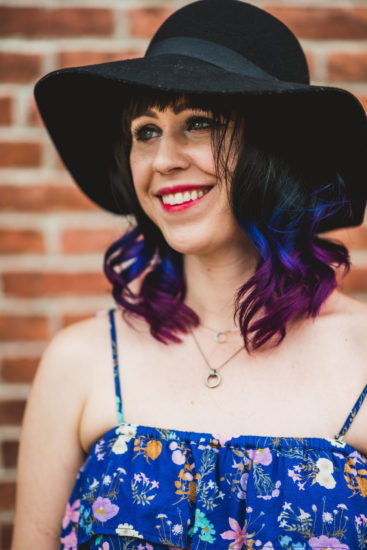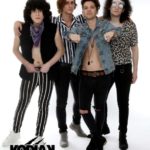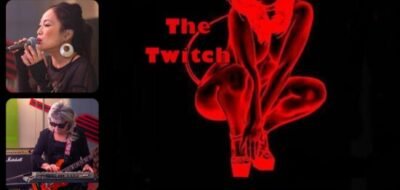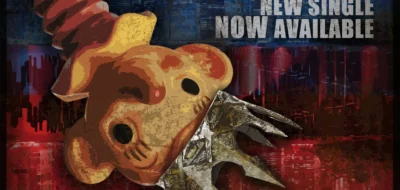When we find the joy of music at a young age it opens up many opportunities for the future. Our recent discovery Kelsea Robin fell in love with music early and has kept the passion going to build a very interesting career.
We had the chance to sit down and dive deeper into her development. Enjoy the interview here:
What first drew you to creating music?
My mom grew up playing piano, so I’d always plink around on her piano. My parents also took us to hear a lot of music; I remember going to see the Magic Flute when I was probably way too young to be going to the opera, and I loved it. I didn’t notice that it wasn’t in English, and I would sing the melodies to the gibberish words that I thought were the lyrics. It probably sounded terrible, but singing the Queen of the Night aria at the top of my lungs is probably my earliest memory of the pure joy of throwing oneself headlong into a musical experience with reckless abandon. I also remember having some very intense Beach Boys dance sessions with my brother that were exhilarating.
There isn’t any big story about why I chose violin. My older sister played, and so of course I had to do everything she did. I still wanted to be different though, so I asked my mom if I could do viola, and she said I had to start with violin. This is pretty common, since it’s easy to switch later, but her explanation was that I had to do violin when I was still little because it’s higher in pitch and therefore closer to the angels. To this day, I can’t get her to tell me where she came up with that one, but anyway, I still play violin!
How would you describe the Kelsea Robin sound?
The sound on the album is actually very different than my live sound. When I perform live, I use a looping pedal to lay down accompaniment tracks on violin, and then sing over that, so it’s a very multilayered, expansive sound, and can be very eerie or very ethereal, depending on what I want to achieve. When everything falls into place, it feels like weaving a spell in real time. I got into the studio and very quickly realized that the magic wasn’t there without the live element, and it wasn’t going to work as a recording. The album is very stubbornly acoustic. I want the focus to be on the songwriting and the sound quality of the instruments. I do struggle to put a genre on it because I hate being put in a box, which is what will happen to you any time you show up anywhere with a violin, but I’ve been going with “sad acoustic indie pop.” It is also very strongly classically influenced, even though I hesitate a bit to say that because it is very much not classical music.
Which artists have had the biggest influence on you?
There is a Brazilian cellist/songwriter named Dom La Nena who also plays with a looping pedal, which is where I got the idea, so she probably deserves the most credit. Hanako Oku is a really wonderful Jpop artist, and I copied a lot of her chord patterns in my early songs to help myself figure out how to do it. She’s an excellent pianist, and her songwriting is very poignant and emotionally relevant, and her recordings are very acoustic and piano heavy, with really well-arranged and played parts, which I love! I was listening to a lot of Anna Nalick when I was a baby songwriter. She always has amazing string arrangements on her albums, and her material is super emotionally resonant. And of course, I can’t forget Stevie Nicks. Despite all the progress that’s been made, music is still so male dominated, and I think she showed a lot of younger female songwriters that it’s meaningful and worthwhile to lean into the feminine. She is a national treasure and I will fight anyone how says otherwise.
Usually mastering violin (congrats on a degree from Belmont University) leads to orchestra work. What made you choose this direction with your solo career?
When I started my master’s degree, my intent was never to go into classical music. I did it because I wanted to be a better player, and classical music is really hard and will definitely help with that! I played all Russian music on my master’s recital, which was a huge challenge, and now that I’ve done that, I feel prepared to tackle any musical challenge. I also chose Belmont because they have a strong songwriting program, and I thought I’d be able to participate in that some, but it turns out it’s separate from the music department, and they didn’t let me do that.
Growing up, I pretty much only played classical music, and don’t get me wrong, I love playing classical music, but I was never really cut out to be a classical performer. Since I wasn’t really exposed to other options, I had sort of given up on becoming a musician. I didn’t even bring my violin with me when I left for my first semester of college. Of course, I missed it terribly, and definitely went and got it over Thanksgiving break. From there I dabbled a little bit, taking on some orchestra opportunities and what not, and one of my friends asked me to play in the backing band for the school’s gospel choir club. To my horror, they didn’t have scores or anything, and that was the first time I had to do any kind of writing, and out of necessity figured out how to do it fairly quickly. Arranging violin parts quickly lead to writing my own songs, and by the time I’d written two, I was just like, “Okay, I’m a songwriter now. I’m going to go do that forever.” So naturally, I went and got a master’s degree in violin performance!
Your debut EP City Boys and Dangerous Toys is now out and truly unique. Tell us about how the record came together?
I went to my friendly neighborhood old rocker guy. It actually worked out really well because I was living way out in the country when I made it, but he was only five minutes down the road. He has a great home studio with vintage equipment, so there was no fancy production, but he put it all through some nice warm preamps that really went well with the acoustic quality. I’ve worked with a lot of people with more advanced technology who couldn’t figure out how to make a violin sound good under the microphone.
I was also working full time, so it took over a year to get it done. I’d go in and do some instrumentals, then bring it to my voice teacher and work on the vocals for a few weeks then go back to the studio to do vocals. It’s only been in the last few years that I’ve learned to use my voice properly (and I am still working on that!), so that was definitely be biggest challenge.
The best part of the whole process however, was bringing in other people who can do things musically that I can’t because that’s when the songs really started to come alive. I’m really so pleased with how everyone who played on it performed. The piano parts were done by one of my coworkers who works as an accompanist, but is also a composer, and he brought the piano tracks alive in a way that I just can’t do with my level of piano proficiency. The drummer is my fiancé, so I knew he would kill it—he had just gotten a new set of nice Tamas, and the toms sound so round and satisfying. I had in my head that the drums would kick off the start of Fighter Not a Lover and it was so amazing to hear that become a reality. We laid down the bass tracks last, and the bassist, who is a friend showed up late with no shoes and I had no idea what he would do, but it was great! He did this really wonderful countermelody at the end of the instrumental break in Pandora, that really upped the drama in such a good way. It reminds me of late romantic Russian music in the best kind of way.
What do you hope the listener takes away from a Kelsea Robin song?
There’s this really wonderful quote from Leonard Cohen that I found in a fat book about songwriting that I had to read for a class I took at NYU:
“Songs are primarily for courting, for finding a mate. For deep things. For summoning love, for healing broken nights, and for the central accompaniment to life’s tasks. Which is to mean or small thing.”
A song, as opposed to a larger scale composition, is a really small contained thing that is over really quickly, so by necessity, all the emotion is distilled down to its essence. That makes them really good for keeping you company when you’re feeling any kind of way. Any time I’m processing something, and I find the right song go with it, I feel a little more understood and a little less alone. When I write these songs, I try to stay really authentic to what I was feeling when whatever inspired the song was happening. So I hope that anyone who is going through something similar can listen to my music and recognize the emotions we have in common even if the details of our stories are different, and I hope it brings them some comfort.
Give us some advice for other artists creating unique original music?
Does anyone have advice for me? I feel like everyone these days is focusing on slick production, and I just don’t care about that! I just make sure to surround myself with other musicians who are really good at their instruments and understand the intent in my music. I trust my ears and my gut, and I speak up when I’m not satisfied with something. On a practical level in the studio, that means giving specific and actionable feedback, and if you picked the right people to play with, it will start to sound how you want it to (or even better!), very quickly. I’ll get back to you in 10 years and let you know whether or not that was the right advice!
What does the future hold for Kelsea Robin?
I just moved to the Phoenix area, and it’s really nice to be in a bigger city with more going on! Of course that means I have to rebuild my relationships with venues and other musicians from scratch, but I have a few festivals coming up, so I think that will help! I’m at Mesa Music Festival in November, and Tempe Festival of the arts in December, and in the meantime, I’ll just be playing out as much as possible. Considering how long it took me to record a five track EP, I should probably start thinking about a full-length album soon! I also plan to add many effects pedals to my pedalboard!
Keep up with more Kelsea Robin HERE.








